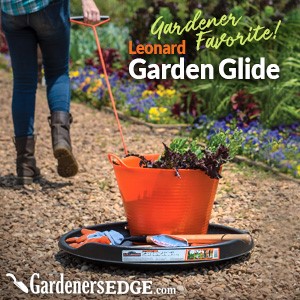
What Is Organic Compost?
Compost is a nutrient-rich soil amendment made from decomposed organic materials. It is created through a natural process called composting, in which microorganisms break down organic matter into a dark, crumbly substance that resembles soil.
Compost can be made from a variety of organic materials, including yard waste, food scraps, leaves, twigs, grass clippings, paper, and wood chips. These materials are mixed together in a compost pile or bin and allowed to decompose over time, with the help of oxygen, water, and microorganisms such as bacteria, fungi, and worms.
The resulting compost is rich in essential plant nutrients such as nitrogen, phosphorus, and potassium, as well as organic matter that improves soil structure, fertility, and water-holding capacity. Compost is often used as a natural fertilizer and soil amendment in gardens, landscapes, and agriculture, and can help reduce the need for synthetic fertilizers and pesticides.
How To Make Your Own Compost
Compost is essential to the overall health and growth of your plants. It is very easy to make your own compost out of food scraps and yard waste from your own home! Follow these simple steps to make your own compost:
Step 1: Choose a Composting Location
Choose a location for your compost bin or pile. It should be in a well-drained area that gets a good amount of sunlight. You can use a store-bought compost bin or create your own using wire mesh or wooden pallets.
Step 2: Collect Composting Materials
Gather the materials you’ll need for composting. These can include:
- Brown materials: dead leaves, twigs, branches, sawdust, shredded paper, and cardboard
- Green materials: fruit and vegetable scraps, coffee grounds, grass clippings, and green leaves
- Water
- Soil or finished compost (optional)
Step 3: Layer the Composting Materials
Start with a layer of brown materials, about 4-6 inches deep. Then add a layer of green materials, about 2-3 inches deep. Continue layering until your pile is about 3 feet high.
Step 4: Add Water
Add enough water to the pile to make it damp but not soaking wet. You want the compost pile to have the consistency of a damp sponge.
Step 5: Turn the Compost
Every few days, use a pitchfork or shovel to turn the compost pile. This helps to mix the materials and add air to the pile, which is essential for composting.
Step 6: Monitor the Compost
Check the temperature of the compost pile with a compost thermometer. The ideal temperature is between 120-160°F. If the temperature is too low, the compost will break down slowly. If it’s too high, it can kill off the beneficial microorganisms.
After a few months, the compost should be dark, crumbly, and smell earthy. This means it’s ready to use in your garden. Use a garden fork or shovel to remove the compost from the bottom of the pile. You can use it as a soil amendment or mulch.
The Importance of Compost In Gardening
There are many important reasons to use compost in your garden or landscape:
- Improves soil health: Compost contains a wealth of beneficial microorganisms, nutrients, and organic matter that improve soil structure, fertility, and water-holding capacity.
- Reduces the need for synthetic fertilizers: Compost is a natural, slow-release fertilizer that provides plants with essential nutrients over time. Using compost can reduce the need for synthetic fertilizers, which can harm beneficial soil microorganisms and cause environmental pollution.
- Increases plant growth and yield: The nutrients and organic matter in compost provide plants with the essential elements they need to grow and produce healthy fruits and vegetables.
- Improves water retention: Compost helps soil retain moisture, reducing the need for irrigation and conserving water.
- Enhances soil structure: Compost can improve soil structure, making it easier for plant roots to penetrate the soil and access nutrients and water.
- Suppresses plant diseases: Compost contains beneficial microorganisms that can help suppress plant diseases and pests.
- Reduces landfill waste: Composting diverts organic waste from landfills, reducing greenhouse gas emissions and contributing to a more sustainable environment.
Overall, using compost can improve the health and productivity of your garden or landscape, reduce environmental impacts, and promote a more sustainable approach to gardening and agriculture.
Anna Ohler is the owner/operator of Bright Lane Gardens, a boutique plant nursery in Northern Michigan. With over a decade of experience in gardening and landscaping, she takes every opportunity to share her knowledge on all things plant related. You can visit her website at BrightLaneGardens.com.




Comment here